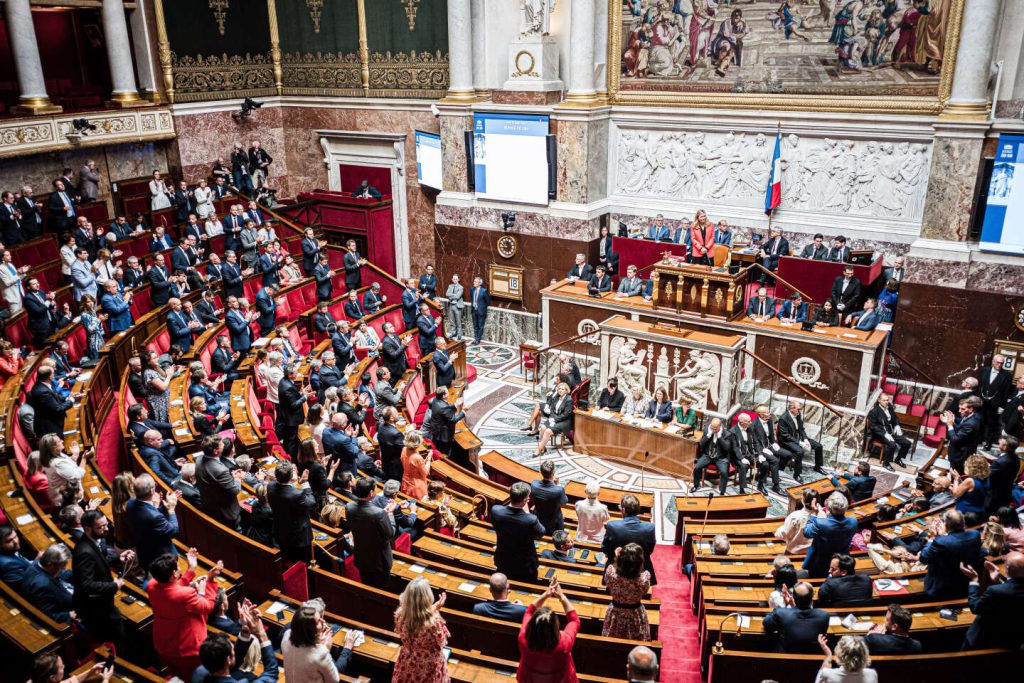The Rassemblement national (RN) claims to have severed ties with the most radical extreme right in France, but behind the scenes, the party founded by Jean-Marie Le Pen maintains connections with several groups supportive of violent action or racial theories. This is happening right in the heart of the National Assembly, where the former Front National is working towards becoming a more mainstream party. Philippe Schreck, a deputy from Var, has hired Rafael Ferron, also known as Raphaël Ayma, as one of his collaborators. Ayma is the spokesperson for the identitarian association Tenesoun, linked to the dissolved nationalist movement Bastion social.
Tenesoun, drawing inspiration from identitarian and royalist movements, aims to combat the concept of the “great replacement” and the erasure of the French people’s existence. Part of the annual neo-fascist parade in Paris organized by the Committee of May 9th, Tenesoun distances itself from mainstream politics and parties, except when it comes to promoting one of its own as a parliamentary collaborator. When confronted about this by the media, Philippe Schreck responded that he didn’t have time to answer, and mentioned plans for a defamation lawsuit. The RN, however, is not willing to let the justice system handle the situation. The party’s parliamentary group director has ordered Schreck to sever ties with Ferron promptly.
The move to distance the RN from radical groups is part of the party’s ongoing effort to appear more mainstream and acceptable to the public. By cutting ties with individuals associated with violent or extreme ideologies, the party hopes to improve its image and distance itself from its extremist roots. This incident highlights the challenges faced by the RN in balancing its past connections with far-right groups and its desire to be seen as a legitimate political party in the French political landscape.
The collaboration between Tenesoun and a parliamentary deputy raises questions about the ideological alliances and influences within the RN. It exposes the hidden connections and potential conflicts of interest that may exist within the party, despite its attempts to present a more moderate and sanitized image to the public. The response to this revelation from both the deputy and the party leadership sheds light on the internal dynamics and tensions within the RN as it navigates its transition from a fringe far-right party to a more mainstream political force.
Overall, this incident underscores the complexities and challenges faced by the RN in its efforts to distance itself from its extremist past while navigating the political landscape in France. The party’s attempts to balance its radical roots with a more moderate image are put to the test when connections to groups holding extreme views come to light. As the RN seeks to broaden its appeal and further mainstream itself, incidents like this one highlight the ongoing struggle to reconcile its past affiliations with the need to present a more acceptable face to the public and political establishment.


